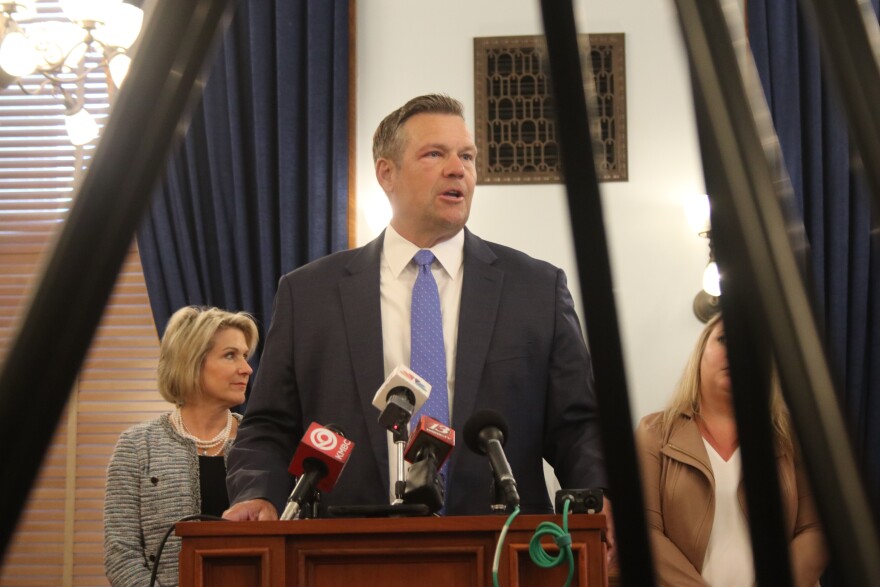A proposal by Kansas Attorney General Kris Koback to change the state's capital punishment laws in hopes of getting executions underway in Kansas is meeting opposition on a number of fronts.
Jurors have sentenced 15 people to death since Kansas reinstated the death penalty in 1994, and nine inmates are currently on death row. But no one has been executed in nearly six decades.
“If Kansas is going to have a death penalty, it needs to be possible to implement,” Kobach recently told reporters.
Citing a lack of access to the drugs used for lethal injection — the only legal execution method in Kansas — Kobach proposed adding death by hypoxia as an option in capital punishment cases.
Death by hypoxia is when a person is deprived of oxygen until death. The controversial method was used for the first time in the execution of Alabama inmate Kenneth Smith in January.
“To put it bluntly, this is suffocating someone to death,” Dr. Joel Zivot, an anesthesiologist at Emory University who studies the death penalty, told KCUR’s Up To Date.
State Senator Carolyn McGinn is a Republican who represents Sedgwick County, including part of Wichita. She’s been a long-time vocal opponent of the death penalty because of how costly it is for Kansas taxpayers.
McGinn also believes capital punishment contradicts the pro-life sentiment that many of her constituents adhere to.
“This is a child of God, and babies should be allowed to be born, and I’ve always wondered at what point in time did they quit being a child of God to where now the government can execute the individual,” she said.
- Kelson Bohnet, capital public defender for the Kansas State Board of Indigents’ Defense
- State Senator Carolyn McGinn, R-Sedgwick County
- Dr. Joel Zivot, associate professor of anesthesiology and surgery at Emory University School of Medicine







